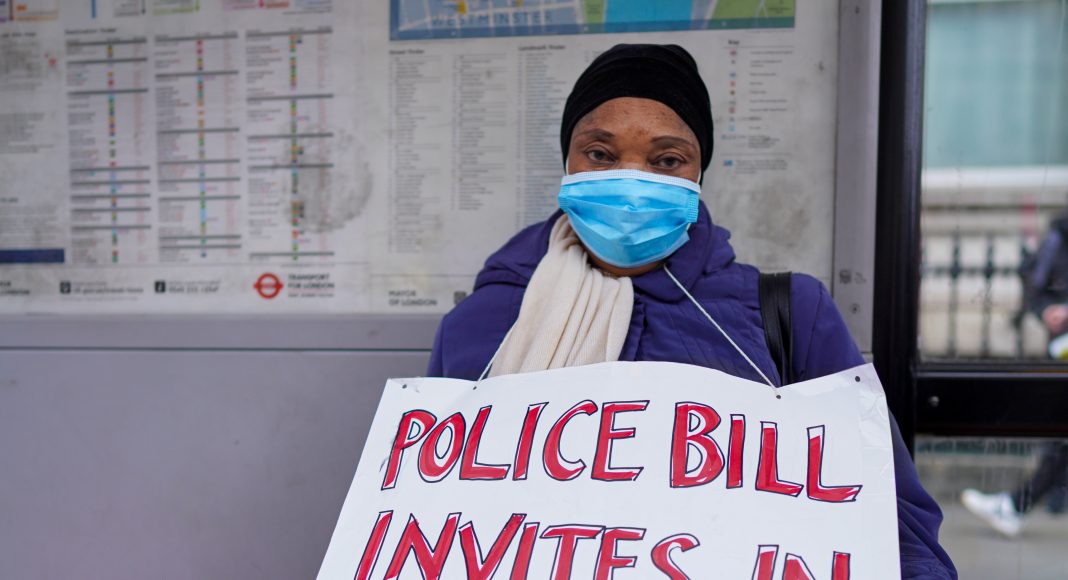On 10 March, Home Secretary Yvette Cooper introduced the Crime and Policing Bill for its second reading in Parliament. She outlined the Labour government’s agenda to ‘make our streets safer’ and ‘help communities to take back our streets from thieves and thugs’. To do this it will introduce draconian and repressive measures against the working class.
The bill is meant to support the government’s ‘safer streets mission’. This mission aims to put 13,000 more police officers, police community support officers, and special constables on the street; bring back ‘community led policing’; crack down on anti-social behaviour; increase ‘trust’ in the police; and cut violent crime. Consequently, the bill deals with a range of issues such as theft, drugs, police accountability, anti-social behaviour, sexual offences and protest. The bill includes a laundry list of measures to oppress and criminalise the working class and empower the state to crush dissent.
Draconian measures
Part of this strategy is the introduction of ‘respect orders’, essentially re-packaged Anti-Social Behaviour Orders. Respect orders allow the courts to impose conditions on an individual that ban them from doing anything described in the order or force them to do anything described in the order without being convicted of a crime. It only needs to be shown ‘on balance of probabilities’ that the person has ‘engaged in or threatens to engage in’ anti-social behaviour. Breaking the conditions of a respect order could lead to indictment and two years in prison if convicted. This is essentially back door criminalisation.
To protect retailers and small shopkeepers from rising retail crime, resulting in an estimated £2.2bn in losses from theft between 2023-2024, the bill will introduce draconian measures for low-value shoplifting. Previously, stealing goods worth under £200 could only be dealt with by a magistrates court, this limit will be scrapped. As a result, regardless of the value of goods stolen, anyone caught stealing from a shop could be imprisoned for up to seven years. While the media makes a big deal of ‘organised crime’, people stealing low-value items usually do so because they’re desperately poor or suffering from drug addiction. This measure will further criminalise the most marginalised in society.
We are seeing the gradual introduction of 1990s-style New York City ‘zero tolerance’ and ‘broken windows’ policing which saw the New York Police Department unleash a wave of repression against the working class. Arrest rates for petty crimes were sky high and the police harassed (mainly black) people with impunity.
Criminalising dissent
Labour’s bill picks up from where the Tories left off in regards to criminalising protest. The anti-protest measures in the bill are a reaction to the Palestine solidarity movement which represents a political crisis for the ruling class. Measures further criminalising protest include:
- Allowing the police to impose conditions on a protest in a given area banning face coverings – breaking these conditions could lead to a to up to a month in prison and a fine.
- Banning pyrotechnics at protests – being caught with pyrotechnics at a protest could lead to a fine of up to £1,000.
- A ban on climbing war memorials, an obvious nod to reactionaries, whipped up by previous home secretaries, enraged at the ‘disrespect’ displayed at protests for Palestine, anti-racism and the environment – being convicted of climbing a war memorial would result in up to three months in prison.
The bill also includes a raft of new ‘counter-terrorism’ measures. Notably, it introduces ‘youth diversion orders’ – a new way to criminalise young people. A youth diversion order will allow the state to impose conditions on anyone under 21. Conditions could include banning someone from associating with certain individuals or restrictions on internet usage. Similar to respect orders, individuals do not need to be convicted of a crime to be handed one; it only needs to be shown that ‘on the balance of probabilities’ they have committed a terrorism offence. Breaking the conditions of a youth diversion order can lead to indictment and two years in prison. This will undoubtedly target young supporters of Palestine.
On 27 March, to the delight of Zionist organisation Community Service Trust, the government announced an amendment to the bill giving the police power to change the route and timing of protest marches that are near places of worship. This formalises the favoured police tactic of banning pro-Palestine protests outside the BBC under the pretext that the BBC is near a synagogue.
Labour’s police state
Labour will not only put more racist police on our streets, but it will give them more powers to spy on and harass the working class with impunity. These include:
- Amending Section 35 of the Anti-social Behaviour, Crime and Policing Act 2014 to allow the police to exclude people from an area for 72 hours, up from 48 hours, and increasing the fine for breaking this.
- Amending the act above to allow the police to seize vehicles, bikes and e-scooters without warning if they are used for ‘anti-social behaviour’.
- Further criminalising migrants by allowing the Crown Prosecution Service and police to issue conditional cautions expelling someone from Britain if they are a foreign national with limited leave to enter or remain in the country.
Increasing powers to drug test on arrest. - Allowing the police to raid someone’s property without a warrant if stolen goods have been electronically tracked at that property.
Allowing the police to have increased access to driving licence data for ‘wider policing purposes’.
Ostensibly, the Crime and Policing Bill will ‘make our streets safer’. In reality, it is a weapon to surveil, oppress and discipline the most marginalised sections of the working class. As the Labour government tries to manage Britain’s capitalist crisis, it needs to ensure the state has the power to deal with increasing opposition to the ruling class by targeting suspect communities. This draconian bill does just that.
Kotsai Sigauke
FIGHT RACISM! FIGHT IMPERIALISM! 305 April/May 2025




